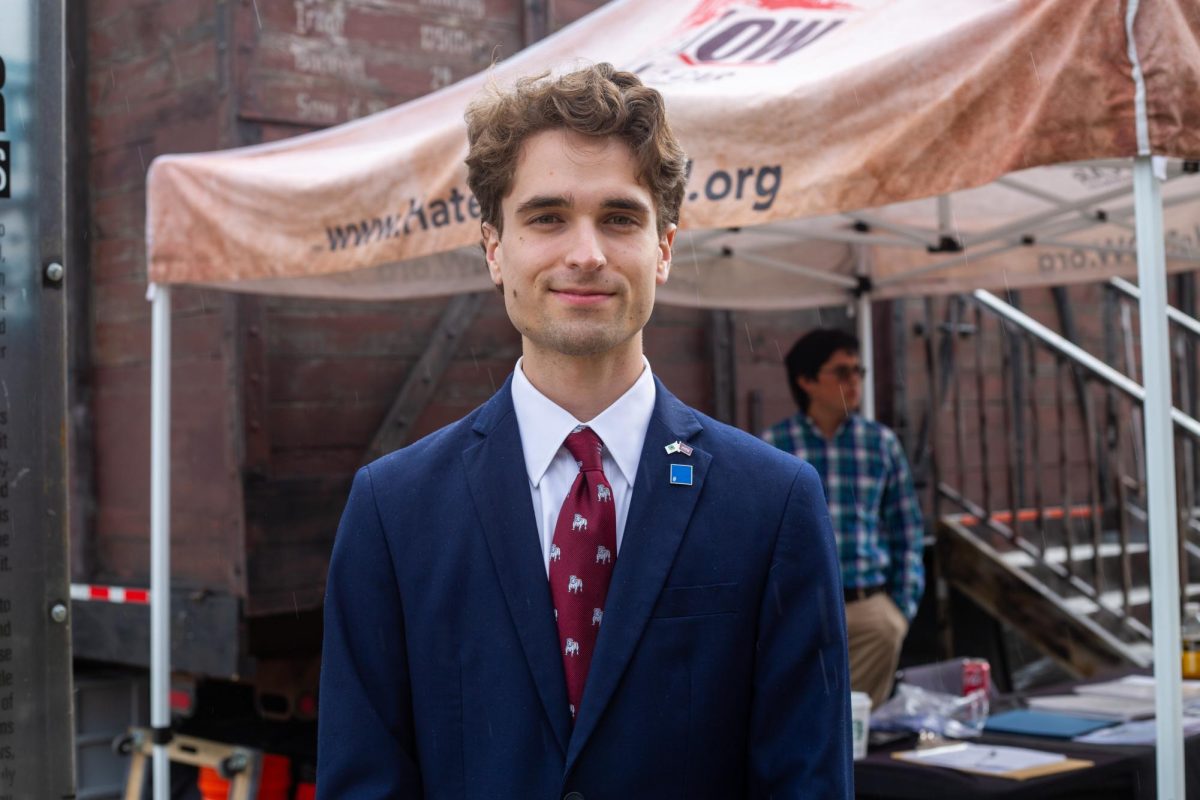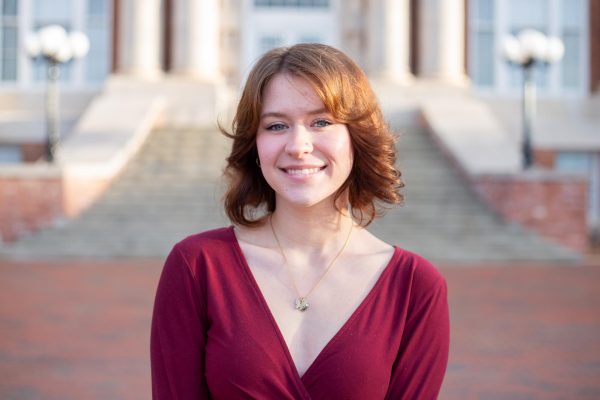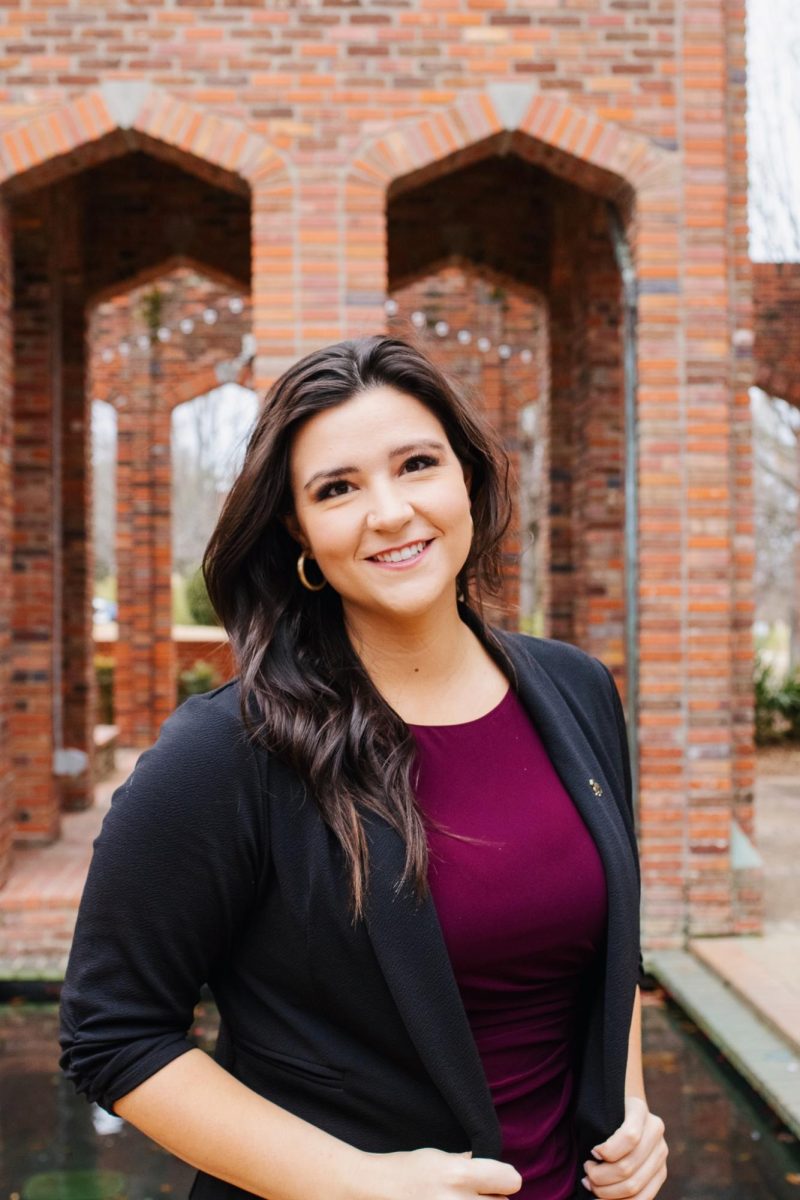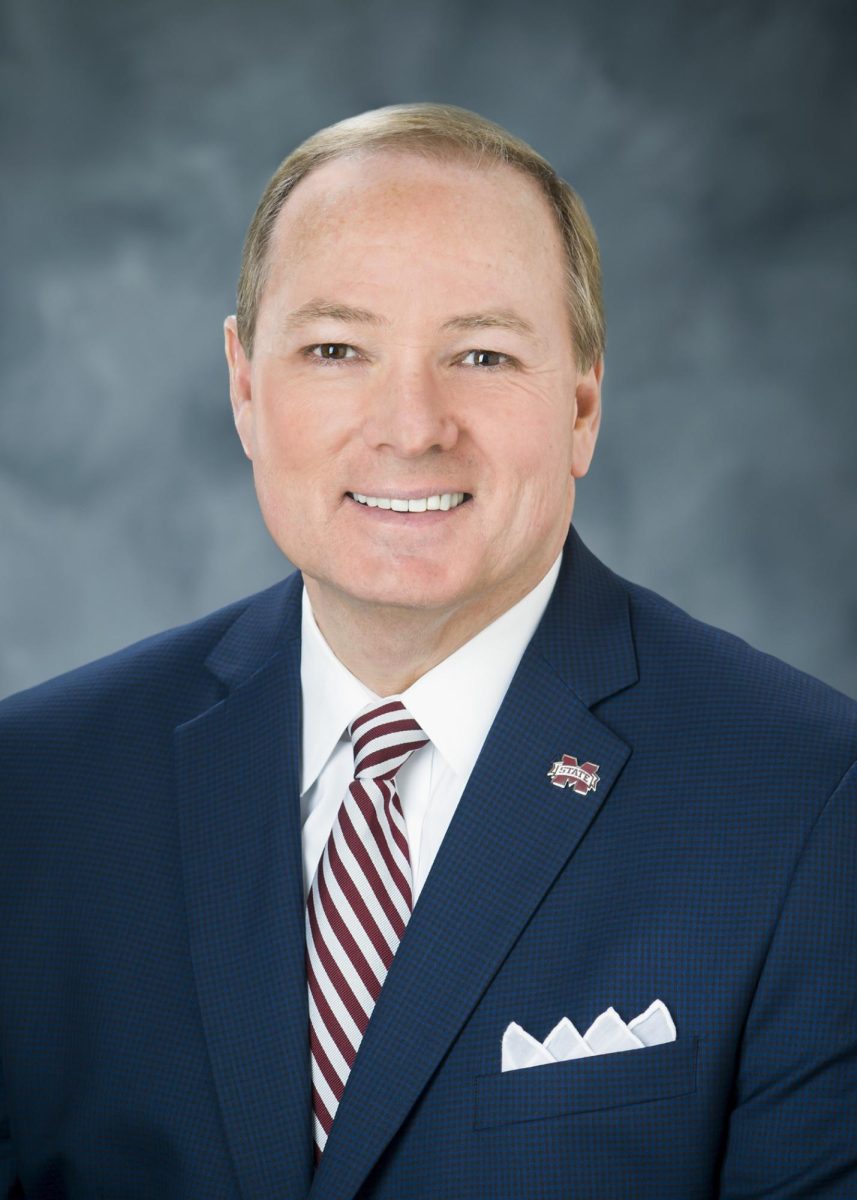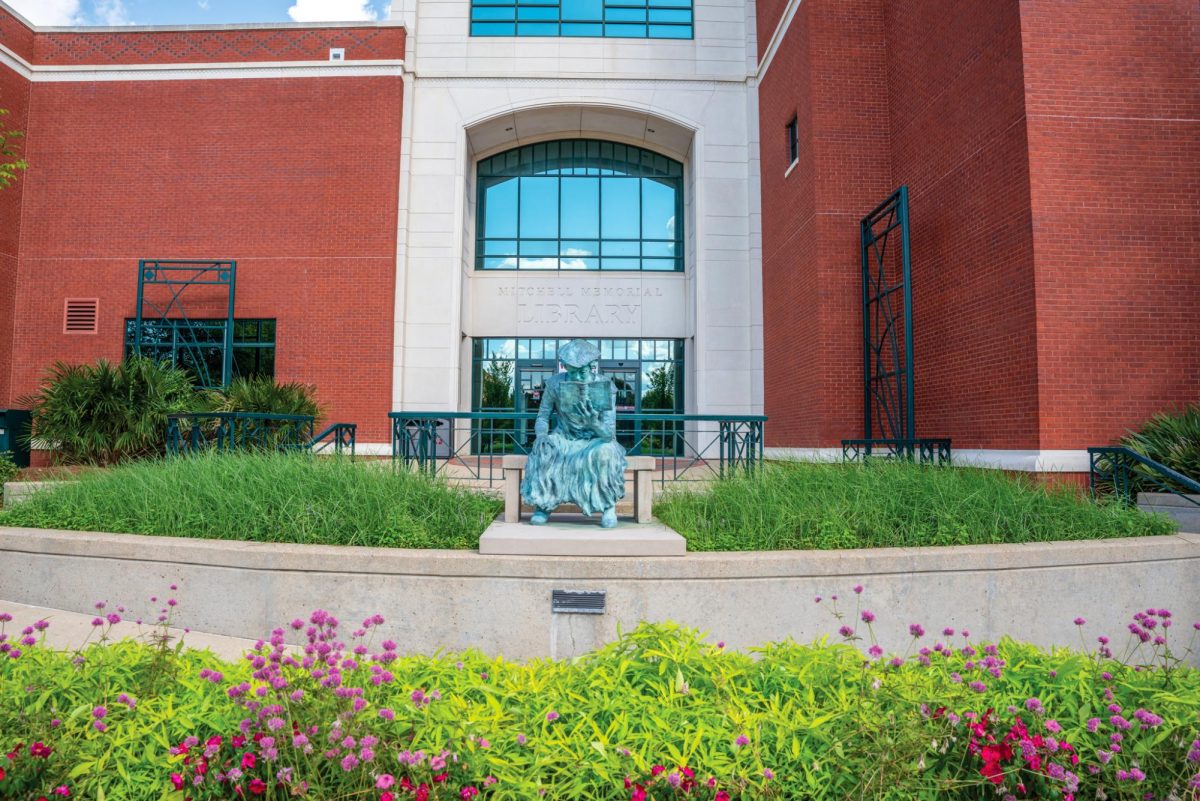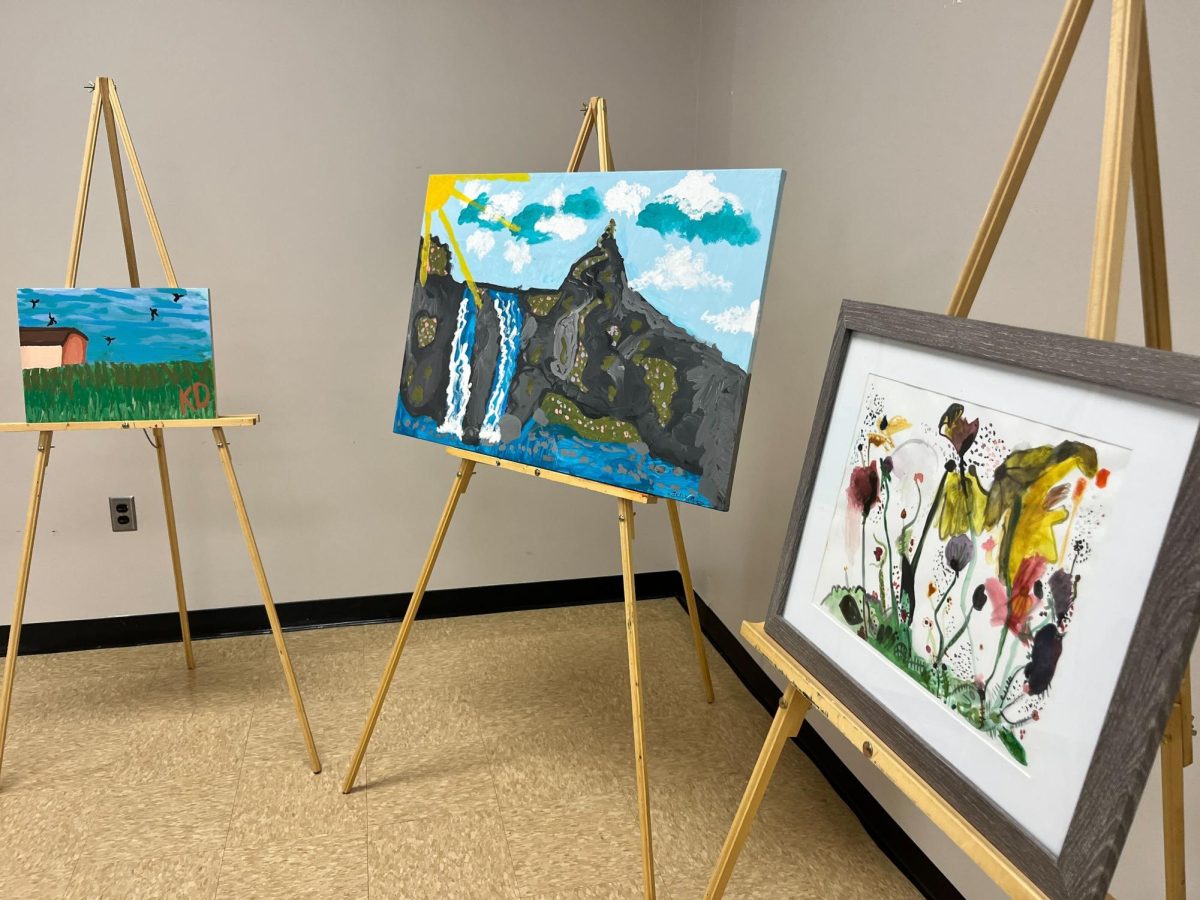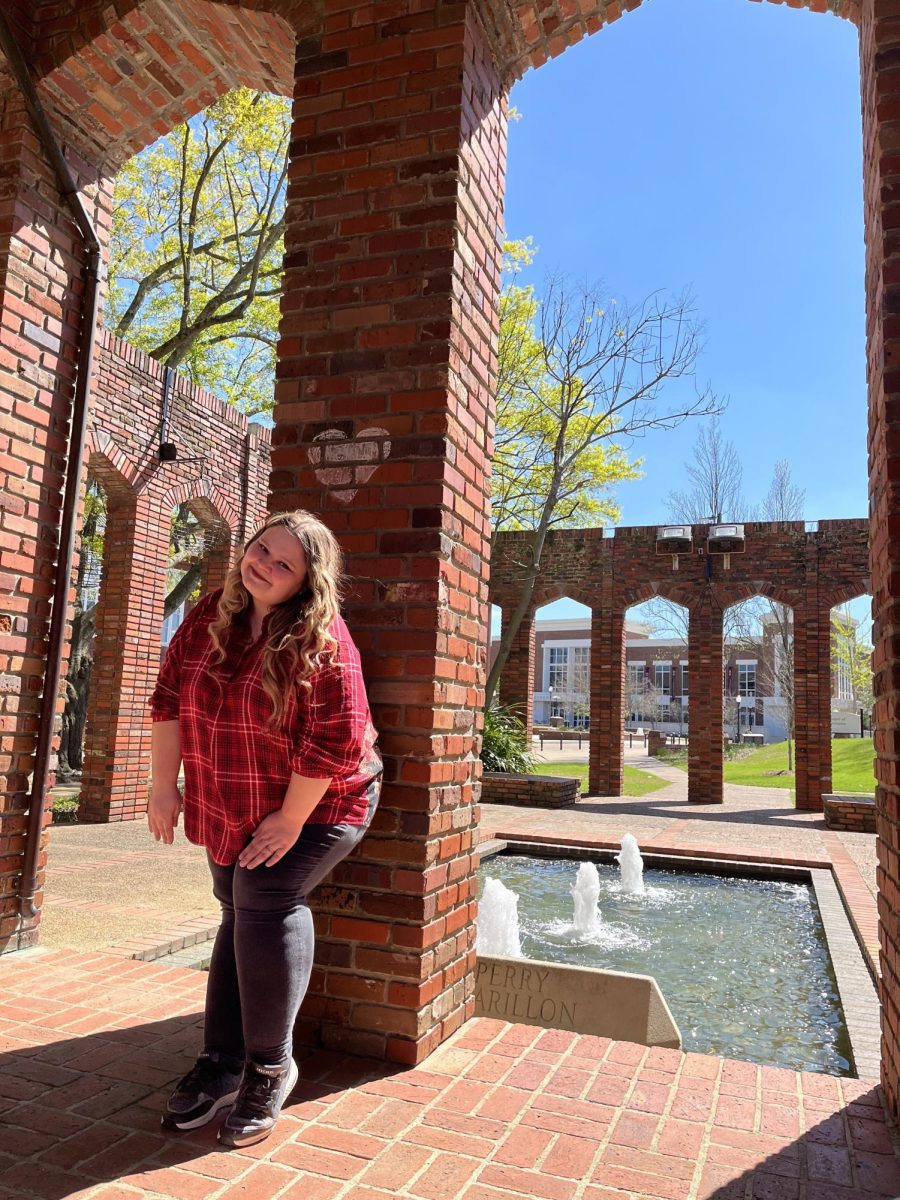In a cattle car not quite wide enough for two people to stand with outstretched arms, twenty people stood huddled. Surrounding projections illuminated its walls with images of torn families and Nazi propaganda. Over the speakers, two Holocaust survivors recounted their journey in cattle cars identical to this one. Below, 100 pairs of footprints were plastered to the ground, representing the men, women and children who were piled into these cars and sent to concentration and death camps.
The Hate Ends Now Cattle Car Exhibit was brought to Mississippi State University last Friday, inviting people to attend from 9 a.m. to 5 p.m. The exhibit saw 278 visitors and was hosted by Hillel, the Jewish Student Association, MSU Extension and 4-H, the USDA Center for Faith-Based and Neighborhood Partnerships and the National Association of RC&D Councils.
The exhibit is a historically accurate replica of the cattle cars used to transport targeted groups to concentration and death camps during World War II. Within the car is an immersive exhibit telling how targeted groups were forced into these crowded cars to endure inhumane conditions for several days and nights. The exhibit follows the story of two Holocaust survivors, Hedy Bohm and Nate Leipcinger, through their horrific journey in the cattle car.
From a speaker overhead, Leipciger stated that the cattle car represented “the transition from being a human being to becoming a number that they could dispose of at their own will.”
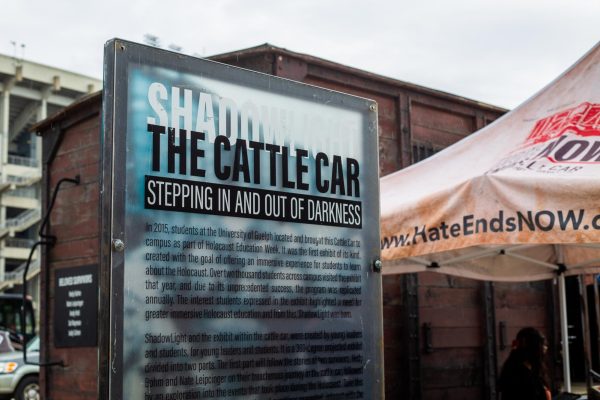
The immersive exhibit encourages people to evaluate the devastating consequences that hate and prejudice can have on people’s lives.
“Though we will never truly understand the experiences of those transported in cattle cars, we encourage you, as you enter this cattle car, to step into your own experience, one of encountering the past and confronting the present,” read a sign posted outside the exhibit.
Emma Noble, a sophomore pursuing a double major in political science and economics, also serves as treasurer of Hillel. Noble hopes that the immersive experience of the cattle car exhibit might help attendees connect the events of the Holocaust with the faces and voices of the victims, rather than mere facts and figures.
“I’m hoping people walk away with a more human connection to [the Holocaust],” Noble said. “A lot of us have been learning about the Holocaust since maybe as early as elementary school, and we’ve heard a lot of numbers and statistics … it becomes easy to detach emotionally from the significance of what happened when we’re talking about it in a classroom. I’m just hoping people can reconnect with the emotional side and take a step back from that classroom setting.”
Hillel President Adam Nathan, a graduate student in agriculture, hopes people walked away from the exhibit with a newfound perspective on accepting others’ differences and rejecting ideas of prejudice.
“I’m hoping people will take away a better understanding of how misinformation and promotion of hateful ideas and prejudices can lead to negative outcomes for people who are their neighbors,” Nathan said. “I think this is a great opportunity to get people exposed to Holocaust education and also have a good discussion of how they can be good allies and how we, as a community, can work together to love each other and prevent hate from occurring.”
A large focus in hosting the exhibit was centered around promoting allyship. Allyship, a term that has gained popularity in recent years, refers to providing “active support for the rights of a minority or marginalized group without being a member of it,” according to Oxford Languages.
Nathan believes that encouraging allyship is especially necessary now, as antisemitism and other forms of religious hate remain high across many college campuses.
In conjunction with the Hate Ends Now Cattle Car Exhibit, a panel discussion promoting allyship was held in the Mitchell Memorial Library at 10 a.m. The panel, “Unity Starts with You,” featured Noble, Hillel Faculty Adviser Laura Drake, Assistant Director of Student Outreach and Engagement Le’Roy Davenport, MSU’s Director of Disability Resource Center Chris Dallager and President of the National Association of Resource Conservation and Development Councils William Hodge.
Noble began the panel discussion by explaining what allyship meant to her as a Jewish convert in Mississippi.
“Allyship really means bolstering diversity, being open to learning and respect,” Noble said. “This means acknowledging that different people’s backgrounds bring different things to the table.”
Noble said organizations must actively push for allyship on campus.
“At the end of our fall semester, we hosted Hail State Holidays, and the organizers of that event reached out to us at Hillel because they recognized the importance of having diverse perspectives as part of that event,” Noble said. “They asked us to do an educational event about Hanukkah, and that was a really important thing we got to participate in.”
Drake recounted a significant example of allyship that she experienced upon moving to Mississippi.
“Being a Jewish woman in the South, it was very intimidating to me the first time somebody asked me, ‘Where do you go to church?’ I just thought to myself, this could go one of two ways,” Drake said. “So, I just shared with her, and she just looked at me, pulled me in close to her, gave me the biggest hug and said, ‘You need to know that you are safe,’ and that is a moment I will never forget.”
Hodge shared thoughts on allyship as a person of color living in Mississippi.
“When you talk about allyship, it means a lot to be a person of color. To have been misunderstood or underrepresented, to have certain perceptions presented to me and then have to use personal experiences to educate, to inform and to allow others to overcome this fear of the unknown,” Hodge said.
Hodge concluded by sharing insight on how to cultivate allyship in one’s personal life.
“When you think about allyship, it is a process. It’s not a destination,” Hodge said. “It’s up to us individually to cultivate that passion. We cultivate the passion of learning. We become the way we think. We understand, we accept, and when we open those doors, allyship comes through.”



















































































